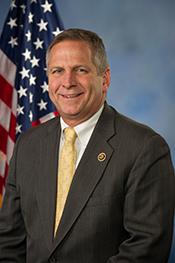Party Line Disagreement on What Caused It
WASHINGTON, DC — Congress passed an emergency funding bill providing an additional $3 billion to VA to address an unexpected shortfall in the FY2024 budget for the Veterans Benefits Administration. The bill was signed into law less than two weeks before the end of the fiscal year and one day before they risked delaying the payment of veterans’ benefits.
While this bill bridges the gap in VBA’s 2024 budget, it does not address a nearly $12 billion shortfall in the Veterans Health Administration’s budget for FY2025. Congress was informed of both shortfalls in July.
Last month was the first time since they learned about the budget shortfall that legislators were able to publicly question the heads of VHA and VBA on how this could have happened and why the deficiencies were discovered so late in the fiscal year.
The explanation from both undersecretaries centered on the department choosing veterans over cost.
“During our statutorily mandated mid-session review [in June] where we go over our financial trends and actuals versus projections, we updated our claims projections,” explained VBA Under Secretary Joshua Jacobs at a House VA Committee hearing. “We added new assumptions that included updating the number of claims we anticipated being able to complete this year from 2.2 million to 2.5 million.”
Discovering they might need more funding, VBA worked with the Office of Management and Budget to make sure their new assessments were reasonable, resulting in the July shortfall announcement.
Jacobs explained that, since then, VBA has reassessed its needs, and it’s possible the department will need only about half of the requested amount. However, they did not downgrade their request out of an abundance of caution.
“The way the pay file is structured, if we’re even $1 short, we can’t even pay one veteran,” Jacobs explained. “We thought it prudent to maintain the original request.”
As for the FY 2025 shortfall in VHA’s budget, that stems mainly from the expansion of care resulting from the PACT Act, VHA Under Secretary Shereef Elnahal, MD, told the committee. Specifically, it’s a result of a decision in March to accelerate the legislation’s timeline, allowing all cohorts of veterans impacted by the bill to access care and benefits, rather than requiring some to wait until as late as 2032.
“We began the fiscal year thinking we could get through [it] and meet all the veterans’ care needs at a level number of employees after such a historic hiring year in 2023,” Elnahal said. “We made every attempt to do that. We scheduled more patients into daily clinics. We offered night clinics and weekend clinics, more convenient options for veterans. We succeeded in delivering more appointments and reducing wait times.”
However, 40,000 new veterans enrolled in VA as a result of that March acceleration, creating a need for more staff and more funding.
According to Elnahal, VA community care needs have increased 16.1% over last year, as have multiple categories of direct care, including a 15% increase in mental health appointments and a 16% in the use of telehealth.
“We’re up in essentially every category of care that we are offering,” he said. “In order to sustain that momentum … and keep wait times down, … we ultimately need this funding.”
While most of that $12 billion shortfall will be used for staffing, $3.8 billion is due to a “really unexpected medical inflation in both medication and prosthetics,” Elnahal added.
Also on hand for the hearing was VA Inspector General Mark Missal, who testified that his office is looking into the circumstances under which VHA and VBA changed their projections.
Committee leaders were split along party lines on where to place the blame.
“Either VA’s estimates are completely unreliable or the administration presented a dishonest budget request in the spring,” Committee Chair Rep. Mike Bost (R-IN) said at the start of the hearing. “We have to find out the truth and press for accountability, so this never happens again.”
Ranking Democrat Mark Takano (D-CA) pointed to the strain on VA’s budget caused by the increasing costs of community care, which have risen from $8 billion to $31 billion over the last decade and now account for one-third of VA’s medical services budget.
“I support VA community care when it is timely and accessible care, but we have reached a fork in the road,” Takano said. “In one direction, we continue down the path we are on and VA crumbles under the enormous weight of for-profit healthcare. … In the other direction, we course correct and create an ecosystem where resources for direct care and community care are balanced and seamlessly function to meet the needs of veterans. This is the more difficult path, but it is the one we must take.”



